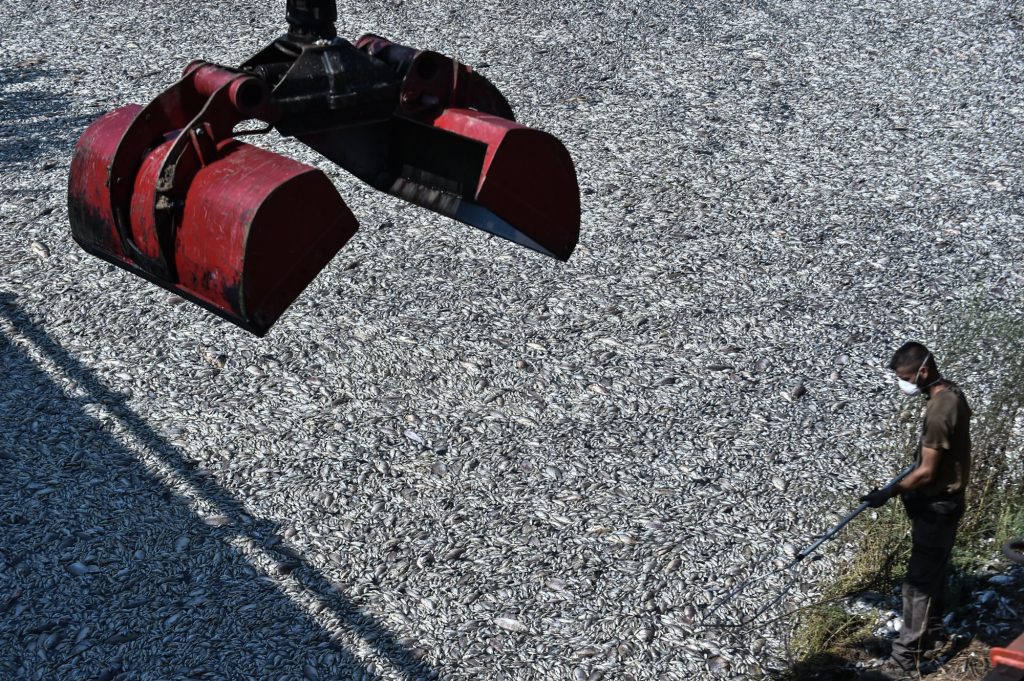The dead fish that have flooded the Pagasetic Gulf and the port city of Volos, in central Greece, for the past two weeks, have been removed, according to officials of the Regional Unit of Thessaly. The coastline has nearly been cleaned, with a total of 270 tons of dead fish having been collected.
However, the ban on swimming has not yet been lifted, still awaiting the results of water sample checks. The latest estimates, though, indicate that the swimming ban could be lifted soon, if the analyses by the National Public Health Organization (EODY) allow it, as reported.
The fact that thousands of dead fish from Lake Karla and the Xiria stream ended up in the Pagasetic Gulf, on the one hand, shows that no preventative measures were taken on behalf of the government to prevent this environmental disaster, and on the other that there was lack of coordination among the authorities involved in the entire procedure.
Beaches Where Swimming Is Prohibited
The Central Port Authority of Volos has issued a directive banning swimming in the area from the easternmost beach of Agria to the beach of Agios Georgios Kinigon in the west. This ban includes dozens of urban and suburban beaches and coastal areas within the Volos Urban Complex.
Support Measures for Businesses around Pagasetic Gulf Announced
Meanwhile, the relevant ministries of National Economy and Finance, Health, Environment and Energy, Labor and Social Security, and Climate Crisis and Civil Protection are jointly planning measures to support businesses that have been affected by the extreme environmental event. These measures include monetary grants, suspension of tax and insurance obligations and the extension of the Thessaly Pass Scheme.




